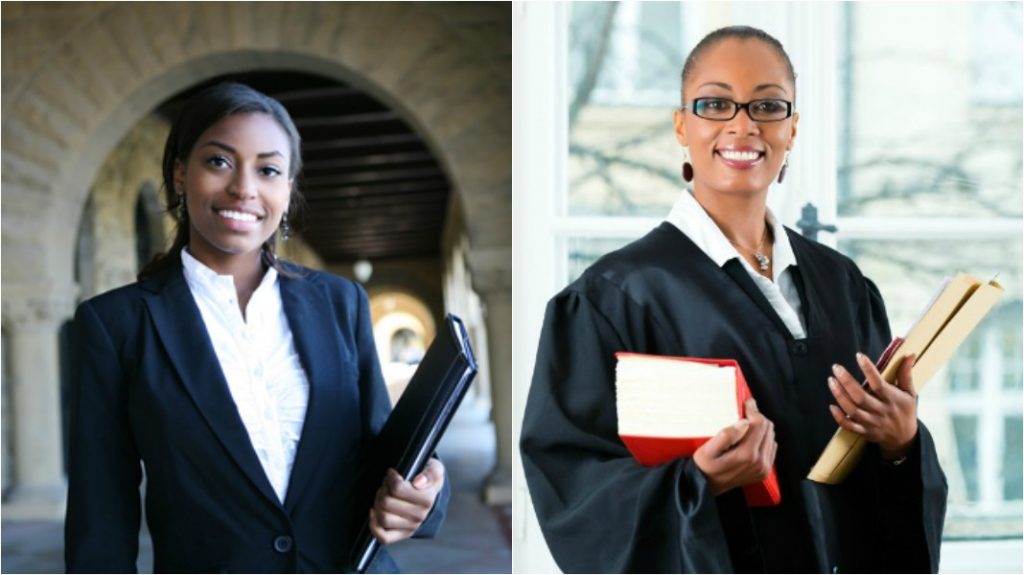A number of black women enter the legal profession each year but how many actually attain real power within corporate South Africa? Black women are still the minority in corporate spaces and we are wholly unrepresented in the power structures Lwando Xaso speaks out about the effects of widely held negative stereotypes in the transformation of corporate South Africa.
I decided when I was thirteen years old that I wanted to be a lawyer. The inspiration came from watching Marcia Clark on CNN strut up and down the courtroom during the O.J. Simpson trial with a sense of authority that I craved even at that age.
The other lawyers in my life who fuelled my passion for the profession were all male. Growing up I did not have an example of a black female lawyer and that lack of representation made me even more determined to be not just a lawyer but a great lawyer not just for myself but for another girl like me looking for a blueprint.
My brand of feminism is dutiful and demands women break barriers despite the inconvenience and cost to one’s personal life- is that not the definition of an activist? My dream was to be a partner at a big law firm and eventually become a judge of the Constitutional Court, because I wanted to normalise the presence of black women lawyers.

Today those dreams seem destined to remain deferred because the journey has been harder than my 13-year-old self anticipated. I am not sure I want those things anymore but if I bow out will I be reinforcing the stereotype that black women are not good enough? What is my responsibility here?
Entering the corporate world as a black woman is to do so with a negative stereotype hanging over your head- that it is too complex of an world for us and that it is the rightful domain of white males and that you would be lucky just to be a reserve.
No one expects you to go all the way- you also do not believe you can. I wanted to break this stereotype, I was determined to pursue partnership at all costs and prove that black women are just as capable. Now, as I contemplate my future in corporate South Africa, I have to wonder whether my intent on disproving the stereotype and the anxiety it caused contributed to my inability to do so.
When one views oneself in terms of a group membership for example, “I am a black woman and black women are not expected to be great lawyers,” performance can be undermined and suppressed because of concerns about possibly confirming negative stereotypes.
In other words, they not only deal with the fear they will personally do poorly or be perceived as not as smart as their white counterparts. They also deal with the stress that their poor performance would reflect badly on all black women. This is an onerous burden to bear which manifests itself in physical and mental health issues.
The effect of the stereotype threat on women in the workplace was illustrated through an experiment when female and male MBA students were paired and asked to negotiate the purchase of a building.
Half of the negotiating pairs were given the information that women are often not effective negotiators because they are not assertive, rational, decisive, forceful, and unemotional. The other half were given neutral information. Women in the stereotype threat group confirmed the stereotype by performing more poorly than the men, while women negotiating without stereotype threat performed as well as the men.
This failure comes at a psychological cost to being one of just a few black people in a predominantly white profession in which you fail to break stereotypes. For instance one of my goals was to develop my writing skills to prove that black women lawyers can write.
Writing opinions and articles became a source of emotional stress because I was labouring under the internalised belief that I cannot because of my race and gender be a good writer and if I indeed did not write well I would confirm that belief that black women cannot write. It is also common for black women to feel compelled to work longer hours in order to disprove the stereotype that black women have a poor work ethic.
However, working long hours can reinforce another stereotype that black women need more time to complete a task that would take someone else half the time. The problem with stereotypes is not that they are untrue but as so eloquently pointed out by author, Chimamanda Adichie Ngozi, the danger is that they create a single story.
There is not only one kind of a black female lawyer just like there is not one kind of white male lawyer, but the problem is that white male lawyers do not get judged by the negative stereotype – the assumption is that all of them are good which is a better launching pad.
Another study revealed that black women professionals tread cautiously to avoid upsetting a company’s majority group’s sensibilities. Put simply, we are visibly black, but we unfortunately don’t want to be perceived as stereotypically black. This means straightening our hair and speaking without a trace of our accents so as to prove we are different ‘more acceptable’ kind of black.
I underestimated the extent to which I had internalised the message that black women are not made for the rigours of the law profession. Several black women enter the corporate world each year but how many actually stay the course and attain real power? How many reach their full potential?
I can only rely on my empirical research, we are still the minority in many of these professional spaces, we are wholly unrepresented in the power structures.. For as long as these spaces remain predominantly white they will reinforce the message that we do not belong.
On their own untransformed spaces serve as a threat to the black women who are expected to perform but how can they when the message that is communicated from the outset is that stereotypically black women do not make it here.
I love being a lawyer. I have obtained three degrees, clerked at the Constitutional Court, written many articles, appeared on radio and TV to talk about important legal matters and I have involved myself in many other causes, just to prove that I am good enough. The stereotype threat presents an additional burden to black women that has the potential to cut their careers short.
I know that any decision that I make regarding my professional future can either serve to break or reinforce negative stereotypes that black women are subjected to.
It is incumbent on us to guard against internalising these negative stereotypes which only suppress our performance and it’s also incumbent on corporate South Africa to neutralise and transform their organisations because if black women are given the opportunity to work unencumbered it can only be profitable for South Africa.

